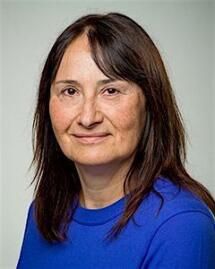From Alberta to Italy, in recovery
Grazie
by Lucia Frangione
Vancouver: Talonbooks, 2023
$21.95 / 9781772015089
Reviewed by Candace Fertile
*
 Lucia Frangione’s debut novel, Grazie, captures how loss devastates the main character, Graziana or Grazie, who has mostly given up on life, even though she has a seven-year-old daughter, Hazel. The child desperately needs someone to notice and take care of her. Enter Herman, Graziana’s stepfather, a widower who has helped by letting Graziana stay in a house he owns in Red Deer and who has tried to keep the mom and child going. But he realizes he has to take a much more active role as his stepdaughter is in dire straits.
Lucia Frangione’s debut novel, Grazie, captures how loss devastates the main character, Graziana or Grazie, who has mostly given up on life, even though she has a seven-year-old daughter, Hazel. The child desperately needs someone to notice and take care of her. Enter Herman, Graziana’s stepfather, a widower who has helped by letting Graziana stay in a house he owns in Red Deer and who has tried to keep the mom and child going. But he realizes he has to take a much more active role as his stepdaughter is in dire straits.
The novel opens as Herman comes to tell Graziana that a man named Ivan Vidal has died in a car accident. Ivan is one of the reasons for Graziana’s suffering. The other is the death of her mother eight years ago, a death that has consumed the daughter with grief.
In high school, Grazie was a star athlete, who ended up being coached by Ivan, a flashy con artist who fooled everyone until he convinced Grazie to try a jump that destroyed her knee and her dreams.
When his phoney credentials are revealed, Ivan takes off; he resurfaces thirteen years later after Grazie has rebuilt her life by discovering she can cycle. She opens a bike shop in Calgary. Once again Ivan demolishes her life by refusing to leave her alone. And eventually he rapes her. She ignores her pregnancy, as her mother is dying.
We learn all that in the first ten pages in an overly complicated narration from Grazie, who refers to herself as “the walrus” and “it” and to Hazel as “the nut.” Grazie has gained an enormous amount of weight. Her sense of herself is deeply disturbing: “Its eyes were the only part of its body it still recognized: two brilliant-blue life preservers swallowed up in a sea of neglect.”

Vancouver’s Frangione details the pain Grazie endures and shows her brokenness. Her self-loathing is overwhelming. And she ends up in the psych ward in Calgary when she stops talking after seeing evidence of Ivan’s death. Herman moves into the house from his apartment down the street and narrates his attempts to care for Hazel.
It’s a challenge, as Hazel is used to being neglected and doing what she wants, and it appears that she has some kind of learning disability. She bites another child at school and is suspended. Herman’s reaction is a hilarious sign of his age: “This over three stitches. You’d think Hazel had brought a switchblade to school and stabbed the kid in the stomach.” As a retired paramedic, Herman has no doubt seen much worse.
A third narrator is Hazel, and this aspect of the novel is borderline successful. Frangione often uses capitalization in Hazel’s narrative, and it’s just as annoying as it is in emails. The least successful narration is a series of chapters titled “Beloved” that address Ivan. They tend to be confusing. For example, “Our beloved has returned to Us unfettered by flesh yet feeling foiled. Not realizing his state, not comprehending the new dimension.” Having these supernatural perspectives seems to take away from the real challenges of Grazie, Hazel, and Herman.
Frangione is trying out different narrative strategies, but just telling the story of her three main characters would be more effective as there is so much to manage with their stories.
Much of the novel works as a kind of travelogue as Grazie goes to Italy to cycle the Via Francigena as part of her recovery. She has been away from her daughter for many months and thinks the pilgrimage will help prepare her to reunite with Hazel. Herman pays for it. Herman is an amazing character, and because of his selflessness could almost be a caricature of goodness, but Frangione manages somehow to make him human and real.
The physical journey matches the psychological and emotional journeys of the three main characters, and the details of places and food in Italy are lovely. As Graziana (“grace” in Italian) becomes reconnected with herself, Herman and Hazel become bonded and find other family members to expand their circle of grace. And as grazie means “thank you,” the novel also demonstrates how actions can be benevolent and worthy of thanks whether done for oneself or others.
How people recover from trauma depends on so many factors, and the gift of this novel is to show that help is required. Professional help is likely necessary, but so are basic human decency and love. And time.
*

Candace Fertile has a PhD in English literature from the University of Alberta. She teaches English at Camosun College in Victoria, writes book reviews for several Canadian publications, and is on the editorial board of Room Magazine. [Editor’s note: Candace Fertile has recently reviewed books by Darcy Friesen Hossack, Robin Yeatman, Emi Sasagawa, Patti Flather, Peter Chapman, Janie Chang, Pauline Holdstock, Ava Bellows, Beth Kope, Geoff Inverarity, and Angélique Lalonde for BCR.]
*
The British Columbia Review
Interim Editors, 2023-24: Trevor Marc Hughes (non-fiction), Brett Josef Grubisic (fiction)
Publisher: Richard Mackie
Formerly The Ormsby Review, The British Columbia Review is an on-line book review and journal service for BC writers and readers. The Advisory Board now consists of Jean Barman, Wade Davis, Robin Fisher, Barry Gough, Hugh Johnston, Kathy Mezei, Patricia Roy, Maria Tippett, and Graeme Wynn. Provincial Government Patron (since September 2018): Creative BC. Honorary Patron: Yosef Wosk. Scholarly Patron: SFU Graduate Liberal Studies. The British Columbia Review was founded in 2016 by Richard Mackie and Alan Twigg.
“Only connect.” – E.M. Forster
One comment on “From Alberta to Italy, in recovery”